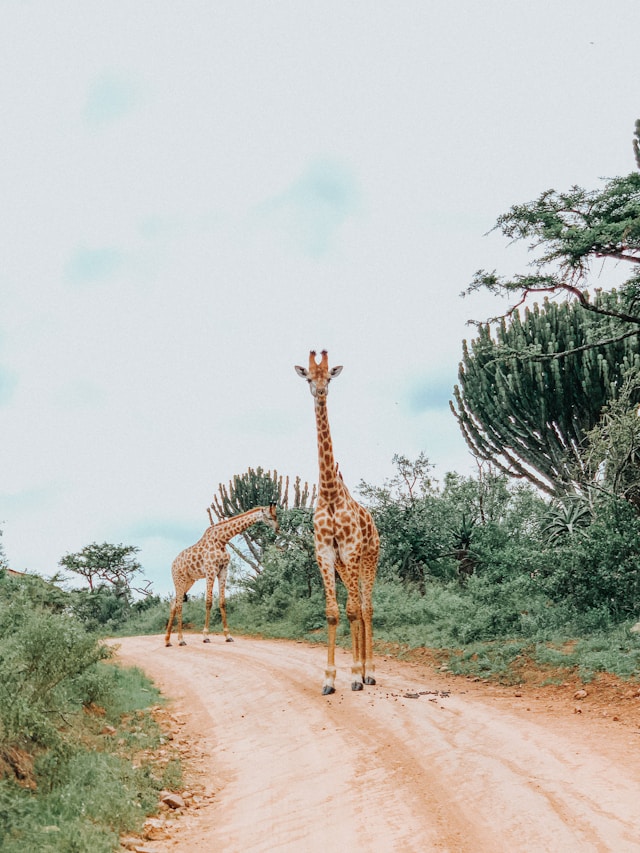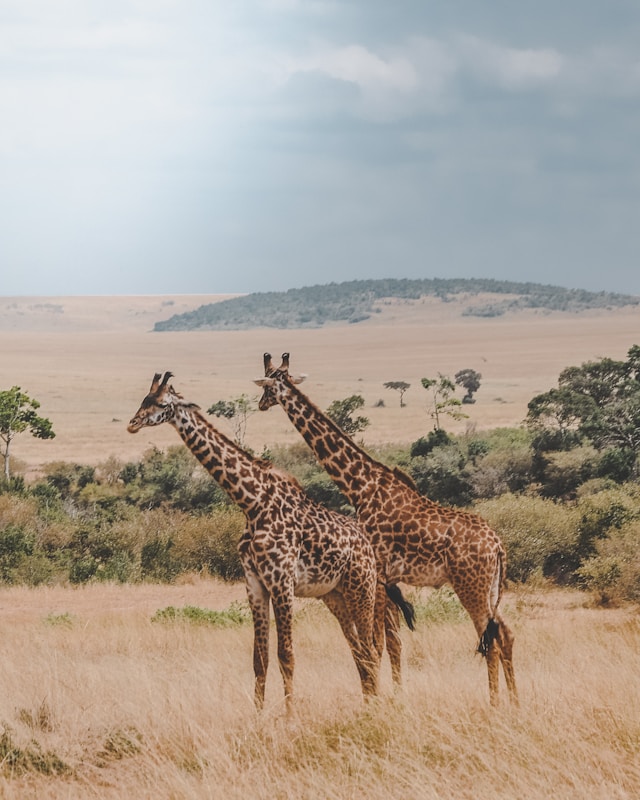If you’re planning a safari trip, you might be wondering how you can make your experience more sustainable. Sustainable safari travel practices are becoming more popular as people become more conscious of their impact on the environment. By making a few simple changes, you can help protect the natural beauty and wildlife of the areas you visit.
One of the most important things you can do is choose a responsible safari operator. Look for operators who are committed to responsible tourism, with a focus on minimizing their environmental impact and supporting local communities. This will ensure that your trip is not only enjoyable but also sustainable. You can also choose to stay in eco-friendly lodges or camps that are built with sustainable materials and use renewable energy sources.
Another way to practice sustainable safari travel is to be mindful of your waste. Dispose of waste responsibly and think carefully about what you do bring with you. Wildlife could be damaged by garbage left by humans. Some simple ways you can contribute to sustainability efforts during your luxury safari vacation include reducing your plastic waste, bringing a reusable water bottle, and packing reusable bags for shopping.

Understanding Sustainable Safari Travel
If you’re planning a safari trip, it’s important to consider the impact it will have on the environment, local communities, and wildlife. Sustainable safari travel practices aim to minimize the negative impact of tourism while promoting responsible and ethical travel.
Environmental Impact
Sustainable safari travel practices aim to minimize the environmental impact of tourism. This includes reducing carbon emissions, minimizing waste, and conserving natural resources. Some safari lodges and operators have implemented eco-friendly practices such as using renewable energy sources, reducing water consumption, and recycling waste.
Community Involvement
Sustainable safari travel practices also involve supporting local communities. This includes hiring local staff, buying local products, and supporting local businesses. By doing so, safari operators can contribute to the economic development of the region and help alleviate poverty.
Conservation Efforts
Conservation is an integral part of sustainable safari travel practices. Safari operators and lodges can contribute to conservation efforts by supporting wildlife conservation programs, promoting responsible wildlife viewing practices, and educating visitors about the importance of conservation. By doing so, they can help preserve the natural habitats and protect endangered species.
Overall, sustainable safari travel practices aim to promote responsible and ethical travel while minimizing the negative impact of tourism. By choosing a safari operator that follows sustainable practices, you can help contribute to conservation efforts and support local communities while enjoying an unforgettable safari experience.

Planning Your Safari
When planning a sustainable safari, there are several factors to consider to ensure that your travels are environmentally conscious and responsible. Here are some key considerations to keep in mind:
Choosing Eco-Friendly Lodges
One of the most important aspects of a sustainable safari is choosing eco-friendly accommodations. Look for lodges or camps that prioritize sustainability by using solar power, water-saving measures, and supporting conservation projects in the local area. Consider staying in accommodations that have been certified by organizations such as the Global Sustainable Tourism Council (GSTC) or have received eco-certifications from other reputable organizations.
Selecting Responsible Tour Operators
Choosing a responsible safari operator is crucial to ensuring that your travels are sustainable. Look for tour operators that are committed to eco-friendly practices and wildlife conservation. They should emphasize low-impact activities, support local communities, and follow ethical wildlife viewing guidelines. Research the company’s sustainability policies and certifications before booking your safari.
Timing and Duration of Visit
The timing and duration of your visit can also impact the sustainability of your safari. Consider visiting during the low season to reduce the impact of tourism on the environment. Additionally, longer stays can be more sustainable than shorter ones, as they allow you to experience more of the local culture and environment while reducing the environmental impact of travel. When planning your itinerary, consider spending more time in fewer locations rather than rushing through multiple destinations.
By considering these factors when planning your safari, you can help ensure that your travels are sustainable and eco-friendly.

During the Safari
When you are on a safari, it is important to continue practicing sustainable travel practices. Here are some tips to help you minimize waste, respect wildlife, and support local economies.
Minimizing Waste
During your safari, try to minimize the amount of waste you produce. Bring reusable water bottles and refill them at the lodges or camps. Avoid using single-use plastic cutlery, straws, and bags. Instead, bring your own reusable utensils and bags. Some eco-friendly lodges and camps provide refillable toiletries, so you don’t need to bring your own.
Respecting Wildlife
When on a safari, it’s important to respect the wildlife and their natural habitat. Always follow ethical wildlife viewing guidelines. Do not disturb the animals, and keep a safe distance from them. Do not feed the animals or leave any food or trash behind. Remember that you are a guest in their home, and it’s important to treat them with respect.
Supporting Local Economies
Supporting the local economies is key to sustainable travel. When purchasing souvenirs, try to buy from local artisans and vendors. This helps to support the local economy and ensures that your money goes directly to the people who need it. Additionally, consider booking tours and activities with local guides and operators. This helps to create jobs and supports the local community.
By following these tips, you can continue to practice sustainable travel practices during your safari. This will help to minimize your impact on the environment and ensure that future generations can enjoy the beauty of the wildlife and landscape.

Post-Safari Actions
After a memorable and sustainable safari experience, there are several post-safari actions you can take to continue supporting conservation efforts and sharing your experiences with others.
Sharing Experiences
One of the best things you can do after a sustainable safari is to share your experiences with others. You can do this by posting photos and stories on social media, writing a blog post, or even creating a video. By sharing your experiences, you can inspire others to travel sustainably and support conservation efforts.
Continued Support for Conservation
Another way to continue supporting conservation efforts is to donate to conservation organizations. Many safari operators have partnerships with conservation organizations and can provide information on how to donate. You can also research and donate to organizations that focus on conservation efforts in the areas you visited.
Additionally, you can make changes in your daily life to reduce your impact on the environment. For example, you can reduce your use of single-use plastics, recycle, and support sustainable products and companies. By making these changes, you are contributing to the overall effort to protect the environment and support sustainable tourism.
Remember, sustainable safari travel is not just about the experience itself, but also about the actions you take before and after your trip. By sharing your experiences and supporting conservation efforts, you can help ensure that future generations can enjoy the beauty and wonder of the natural world.

Emerging Trends in Sustainable Safari
Sustainable safari travel practices are becoming increasingly popular as more people become aware of the impact of tourism on the environment. In recent years, there have been many emerging trends in sustainable safari that are helping to reduce the negative impact of tourism on wildlife and their habitats. Here are two of the most significant trends:
Technology in Conservation
Technology is playing a significant role in conservation efforts in many African countries. For example, drones are being used to monitor wildlife and track poachers. This technology has proven to be incredibly effective in reducing poaching and protecting endangered species. In addition, many safari lodges are using renewable energy sources such as solar power to reduce their carbon footprint. This not only helps to protect the environment but also reduces costs for the safari lodges.
Innovative Eco-Tourism Models
There are many innovative eco-tourism models emerging that are helping to promote sustainable safari travel. For example, some safari companies are partnering with local communities to create sustainable tourism projects that benefit both the local community and the environment. These projects include eco-lodges, community-based conservation initiatives, and sustainable agriculture projects. By working with local communities, these safari companies are helping to create economic opportunities while also protecting the environment.
In conclusion, sustainable safari travel practices are becoming increasingly important in the tourism industry. With the help of technology and innovative eco-tourism models, it is possible to reduce the negative impact of tourism on wildlife and their habitats while also creating economic opportunities for local communities.

Leave a Reply